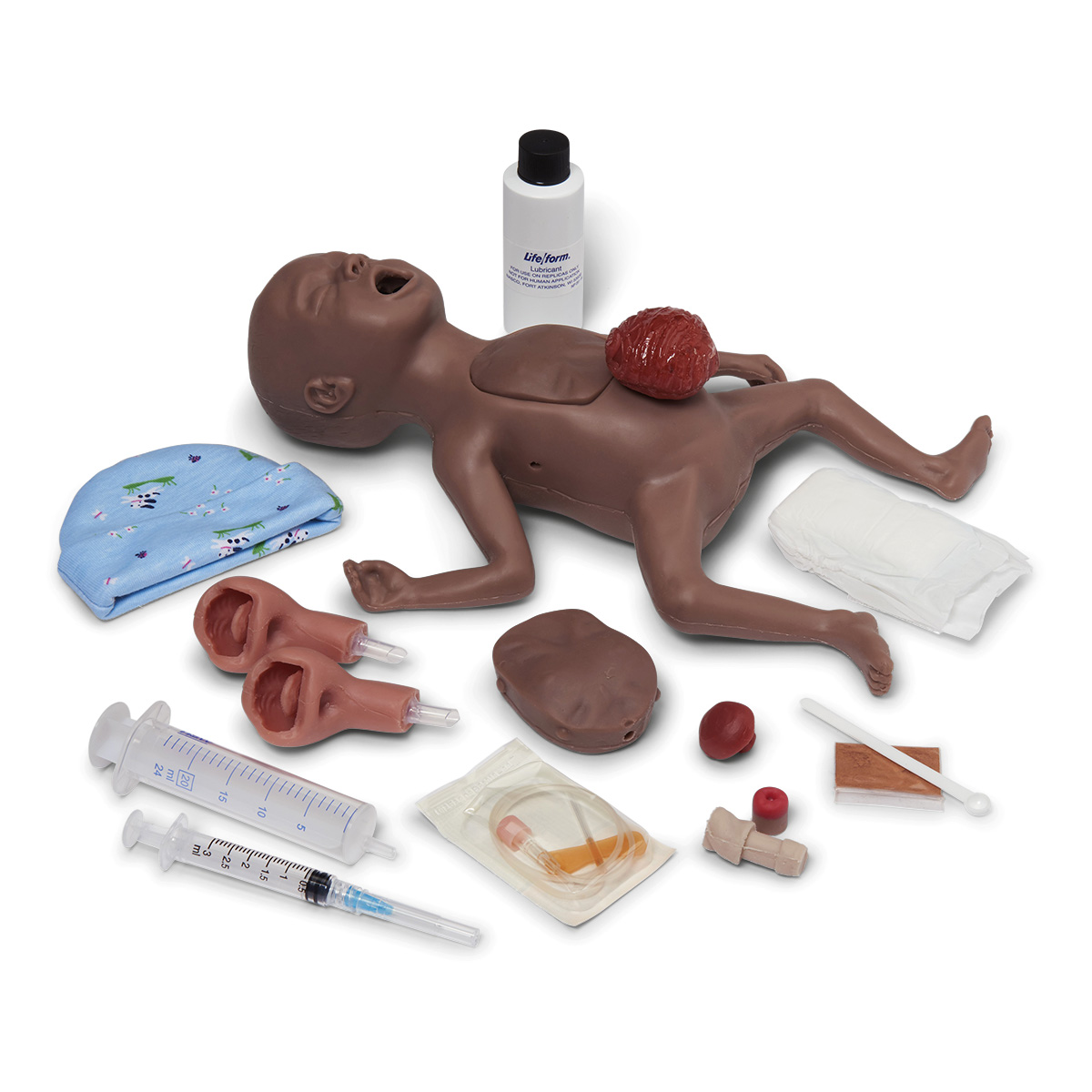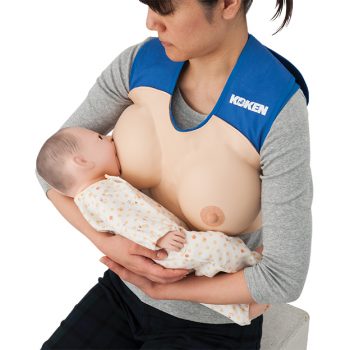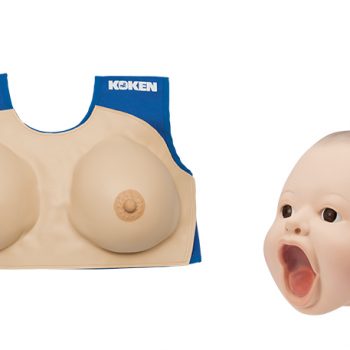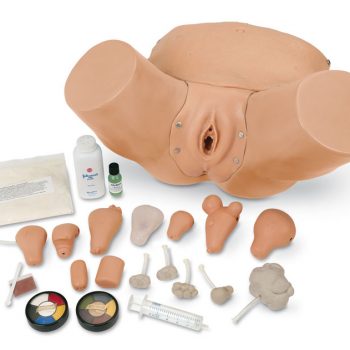Nearly one out of every eight newborns arrive prematurely. To help you give your tiniest patients the best care possible, 3B Scientific is proud to introduce the Life/form® Micro-Preemie. This 25-week ELBW (Extremely Low Birth Weight) neonate is the smallest and most realistic pre-term infant available. Invaluable for training nurses and parents in care and handling techniques for babies that have had multiple medical interventions; the perfect team training aid for multiples or other high-risk delivery and transport scenarios. The baby can be ventilated and will accept a functional ET tube, NG tube, umbilical catheter, and IV line, as well as a non-functional chest tube and stomas. Detachable neural tube defect and omphalocele.
Includes diaper, hat, lubricant, 3 cc syringe, 25 G. butterfly needle and blood powder. Hat color may vary. NG tube size 5 FR. ET tube size 5 mm ID.
Simulator dimensions: 12″ long, 4″ deep, and 18-1/2″ across from hand to hand.
Features and Functions:
Breathing – pulse bulb to manually simulate breathing rate volume.
Ventilation – molded-in lung produces a visible chest rise when ventilated by mouth; trachea and pharynx are not anatomically correct, but will accept a functioning endotracheal tube.
GI – one nostril will accept a functioning NG tube (tube passes through the body and liquids will either drain away from the body or into the diaper); optional stoma can be plugged into a permanent site on the abdomen.
Umbilicus – soft, lifelike umbilicus has a patent vein and two arteries; umbilical stump functions like a cork, plugging into a small cavity molded into the abdomen (cavity can be used as a reservoir for blood drawn through a catheter or to receive fluids and the drain exits from the diaper area); a separate umbilicus represents an optional omphalocele.
IV Access – several typical sites have embedded tubing that can accept an IV catheter; one is functional, allowing the administration of fluids, which will drain from the diaper area.
Chest Tube – a permanent site in the baby’s side accepts a nonfunctioning chest tube.
Neural Tube Defect – An optional structure representing an open neural tube defect can be inserted into the back.
Various monitors, sensors, electrodes, etc., can be attached to the manikin wherever needed.
Manikin can be used with Supraglottic airway devices for airway training.








